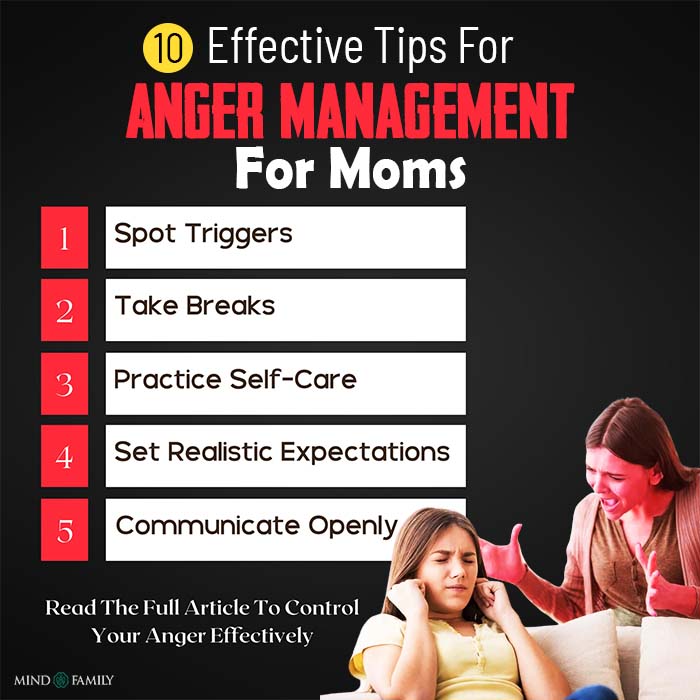Being a mom is a rewarding journey filled with love, laughter, and countless precious moments. But amidst the joy, there are also moments of frustration and anger that every mom experiences.
Sometimes, these feelings can become overwhelming, leading to what’s commonly known as “mom rage.” It’s a term that’s often misunderstood, yet it’s a very real struggle for many mothers.
In this article, we’ll explore what mom rage is, why it happens, and provide strategies for anger management for moms. Whether you’re a new mom or a seasoned parent, understanding how to navigate mom rage can make a world of difference in your journey of motherhood.
What Is Mom Rage?
One of the common mistakes that people make when defining ‘Mom Rage’ is that they look at the manifestation of something that has been brewing for a long time. To someone looking from outside one might see this as an overreaction.
This is mostly due to the fact that the term ‘mom rage’ has not yet been defined properly. However a commonly agreed definition is that it is an intense form of frustration and anger that may lead to verbal as well as physical outbursts in moms.
Most experts agree that this stems from postpartum impacts. Psychotherapists say this can lead to a major disruption in the family dynamics and can even have a long-term mental impact on moms.
Anger management for moms may come as a respite to these outbursts. You have to realise this is not who you are it is rather a response or an reaction to something that has been pestering you for a long time.
Read More: How To Avoid Parental Gaslighting: 5 Effective Tips For Parents!
What Causes Mom Rage?
Understanding what causes mom rage can help you address the symptoms effectively.
Mom rage, or parental anger, can be caused by a variety of factors, including:
1. Stress:
The responsibilities of parenting and other obligations like work, housework and managing finances may lead to high levels of stress. Sometimes stress may mask itself as anger.
2. Fatigue:
Parents’ lack of sleep and constant fatigue associated with child care can significantly lower their ability to handle daily challenges. Fatigue reduces parents’ level of endurance leading to more irritability and anger.
3. Feelings of inadequacy:
Parenting is a full-time job that needs perfection according to some societal expectations. Parental frustration and anger are often experienced when they think that they have not met such anticipations or fallen short.
4. Lack of support:
Parenting can be an isolating experience especially when parents do not have a strong support system around them. Feeling alone in taking care of children’s demands for attention as well as household chores may deepen the sense of exasperation or anger.
5. Unrealistic expectations:
When people have unrealistic beliefs about what parenthood is, they get angry when their expectations are disappointed by reality (Erikson 2019). Unrealistic expectations, such as expecting kids to act well all the time or thinking that raising kids should be easy, can result in frustration and anger if they are not fulfilled.
6. Financial pressures:
Lack of money is another stressful part about being a parent especially if parents cannot afford basic necessities for their children (Dempsey 2010). Worries about funds can also stoke the fires of frustration and resentment.
7. Lack of personal time:
Having no moment for oneself tends to make parents feel overwhelmed by having kids every minute around them (Siegel 2016). Without time allocated for relaxation or self-care it means that stress levels increase resulting in more anger.
8. Relationship issues:
Conflict with your partner or co-parent in relation to parenting decisions or any other matters has always been a source of anger and frustration.
It is important to note that occasional feelings of anger or frustration are normal for every parent. Thus, moms with anger management can be aided with some techniques which will prevent them from these outbursts and keep their families safe.
Read More: What Is Eggshell Parenting: 5 Alarming Effects Parents Must Know!
Anger Management For Moms: 10 Effective Tips

Anger management for moms is crucial when you are facing mom rage and can help to maintain your and the well-being of your children.
Here are ten effective tips for anger management for moms:
1. Spot Triggers:
Take your time to identify the specific situations, behaviors, or thoughts that tend to trigger your anger. This may include a cluttered house, unruly children or overburdened feeling due to responsibilities; understanding these triggers represents the first step in effectively managing them.
When you recognize what turns on your anger, you can predict these triggers and create mechanisms of dealing with them better.
2. Take Breaks:
Take permission from yourself when rage is about to happen so that you can walk away for some time. Calming down, reevaluating and getting insights are some of the things achieved by taking breaks.
During this period carry out deep breathing exercises, mindfulness techniques or just get away from the upsetting environment. By allowing yourself enough space for cooling down you can avoid intensification of emotions and react in a more composed way.
3. Practice Self-Care:
Include self-care activities that facilitate relaxation and stress reduction as top priorities in life schedules if possible at all times. They range from having a hot bath to going for a walk in the woods or even indulging one’s favorite hobbies once again for example reading novels among others.
Self-care is neither being selfish nor optional but it is very crucial for emotional well-being and resilience too because parent will be able handle parenting challenges effectively manage their anger through nurturing themselves satisfactorily.
4. Set Realistic Expectations:
There are lots of challenges associated with being parents hence making mistakes along the way is normal than expected in order to achieve perfection.So instead of aiming for perfectionism, set reasonable expectations both for yourself as well as your children.
Accept that sometimes things do not go as planned and it’s fine this way.In addition you may minimize frustration feelings plus angriness by accepting imperfections within yourself while something goes beyond plan.
5. Communicate Openly:
Create an atmosphere where there is open communication with your children and spouse. Allow them to share their thoughts and feelings and you should do the same. Good communication can be a way of stopping misunderstandings and avoiding conflicts.
By creating a supportive and understanding environment where everyone feels heard and valued, you can strengthen your relationships and minimize anger-provoking situations.
6. Develop Coping Strategies:
Identify healthy coping strategies to manage stress and anger. Whether it’s journaling, practicing relaxation techniques like yoga or meditation, or engaging in physical activity, find what works best for you.
Experiment with different coping mechanisms and incorporate them into your daily routine. Having a toolbox of coping strategies allows you to effectively manage anger when it arises and maintain emotional balance.
7. Seek Support:
Don’t hesitate to reach out for support when needed. Whether it’s talking to trusted friends, family members, or a therapist, sharing your feelings and experiences can provide valuable perspective and encouragement.
Joining a support group for moms can also offer a sense of community and understanding. Remember, you’re not alone in your struggles, and seeking support is a sign of strength, not weakness.
8. Practice Forgiveness:
Learn to forgive yourself and others for mistakes and shortcomings. Holding onto resentment and anger only perpetuates negative emotions and prevents healing. Practice forgiveness as a way to release pent-up anger and move forward in a positive direction.
By letting go of grudges and embracing forgiveness, you free yourself from the burden of anger and create space for growth and healing.
9. Use Positive Discipline Techniques:
Instead of resorting to punitive measures or yelling when disciplining your children, focus on positive discipline techniques. Set clear boundaries, offer choices, and provide positive reinforcement for good behavior.
By emphasizing positive reinforcement and constructive guidance, you teach your children valuable life skills and maintain a peaceful and respectful home environment.
10. Model Healthy Behavior:
Remember that your children learn from watching your behavior. Model healthy ways of managing emotions and resolving conflicts, so they can learn to do the same. Show them that it’s okay to express emotions and seek help when needed.
By being a positive role model and demonstrating effective anger management techniques, you empower your children to navigate their emotions in healthy and constructive ways.
By implementing these tips into your daily life, you can develop effective strategies for managing anger and creating a more peaceful and harmonious home environment for you and your family.
Read More: What To Do When Your Grown Child Hurts Your Feelings: 12 Tips For A Healthy Response
A Word From Mind Family
Anger management for moms and dealing with mom can be tough. But it’s okay to feel this way sometimes. The important thing is to find ways to handle it.
Remember, it’s not about being perfect. It’s about trying your best and being kind to yourself. Asking for help when you need it is a strong thing to do. Together, let’s learn to forgive, show our kids how to handle emotions, and create a happy home where everyone feels good.
In the end, being a mom is about love and learning, and we’re all in this together
Frequently Asked Questions (FAQs)
1. What is mom rage?
Mom rage refers to intense feelings of frustration and anger experienced by mothers, often resulting in verbal or physical outbursts. It stems from various stressors and challenges associated with parenting.
2. What causes mom rage?
Understanding what causes mom rage can help you address it effectively. Mom rage can be caused by factors like stress, fatigue, lack of support, unrealistic expectations, financial pressures, and relationship issues.
3. What are some tips for anger management for moms?
Tips for anger management for moms include recognizing triggers, taking breaks, practicing self-care, setting realistic expectations, fostering open communication, developing coping strategies, seeking support, practicing forgiveness, using positive discipline techniques, and modeling healthy behavior.


















Leave a Reply